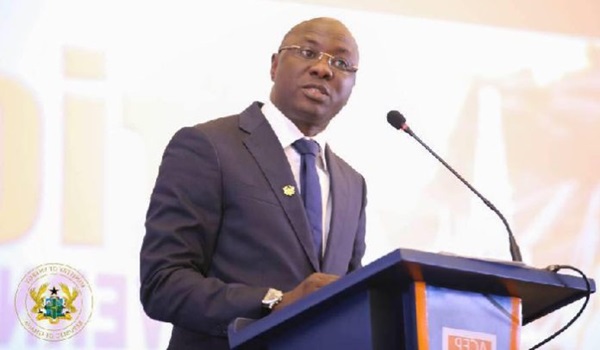
Repayment of bilateral debt in 2026: MoF to make proposals to Cabinet
The Ministry of Finance is to propose to the Cabinet the establishment of a financial buffer that will enable the country to easily pay its bilateral debts when repayment resumes in 2026.
The proposal follows the formalisation of the country’s agreement with bilateral creditors in a deal that will see the country suspend payments of its bilateral debts that are due between 2023 and 2026.
Addressing the media in Accra, the Minister of Finance, Dr Mohammed Amin Adam, said the agreement with the bilateral creditors would provide significant debt repayment relief for the country.
“What this means is that debt service that was due between 2023 and 2026 has been rescheduled and we will not have to service them now.
“The money we would have used to service the debt will now be available to the government to spend on critical sectors of the economy,” the Minister stated.
He said the Ministry of Finance would, however, present to Cabinet for consideration, options on the best investments that the country could put this money into to reduce the fiscal burden when the time for repayment commences in 2026.
As part of the proposals, he said the ministry would recommend the setting aside of part of the money to build buffers for repayment.
“We are proposing the establishment of a buffer that could help us repay these facilities when repayment resumes after 2026 in a manner that will reduce the fiscal burden on the budget at the time.
“The relief we got during HIPC, all the money was spent, this time we are proposing to Cabinet to consider not spending all the money that we would have used to service our debt,” he explained.
Growing revenue
Responding to a question from the Graphic Business, the Minister said the government also intends to increase tax revenue to lessen the burden of repayment in 2026.
He said the government intends to grow tax to GDP from the current 14 to 16.5% by 2026.
“We intend to increase revenues and we are working on that in the medium term. We expect a tax-to-GDP ratio of 16.5 in 2026 and this is possible because we are projecting to grow the economy by 5% by that time,” he said.
He said the government was also committed to achieving a primary surplus of 1.5% of GDP by 2026.
“These are all indicators that show our efforts and capacity to repay when they are due,” he said.
Agreement with OCC
After 16 months of negotiations, the government of Ghana has officially secured a memorandum of understanding (MoU) with the Official Bilateral Creditor Committee (OCC) co-chaired by France and China.
The MoU, which follows an interim agreement in January, represents the final step in the country’s debt restructuring talks with the OCC that the country owes $5.1 billion.
Each official creditor is now expected to follow its internal procedures to sign the MoU. Once signed, the agreed terms will be implemented through bilateral agreements with each OCC member.
The agreement will now pave the way for the Executive Board of the International Monetary Fund (IMF) to approve the second review of the country’s three-year programme with the fund aimed at restoring macroeconomic stability and debt sustainability.
The approval of the second review, which is expected to happen later this month, will unlock the third tranche of $360 million from the IMF, bringing the total disbursement under the programme to $1.56 billion.
The $360 million will help shore up the country’s international reserves and help stabilise the local Cedi which has lost some ground against the major trading currencies since the beginning of the year.
The IMF Board’s approval is also expected to trigger more financial assistance from development partners, particularly the World Bank.